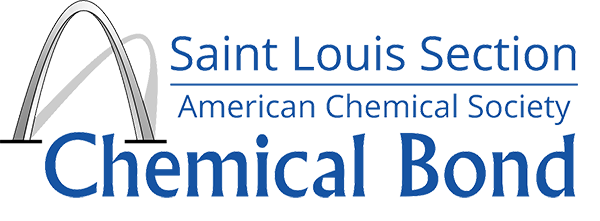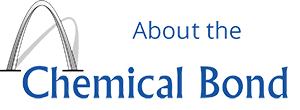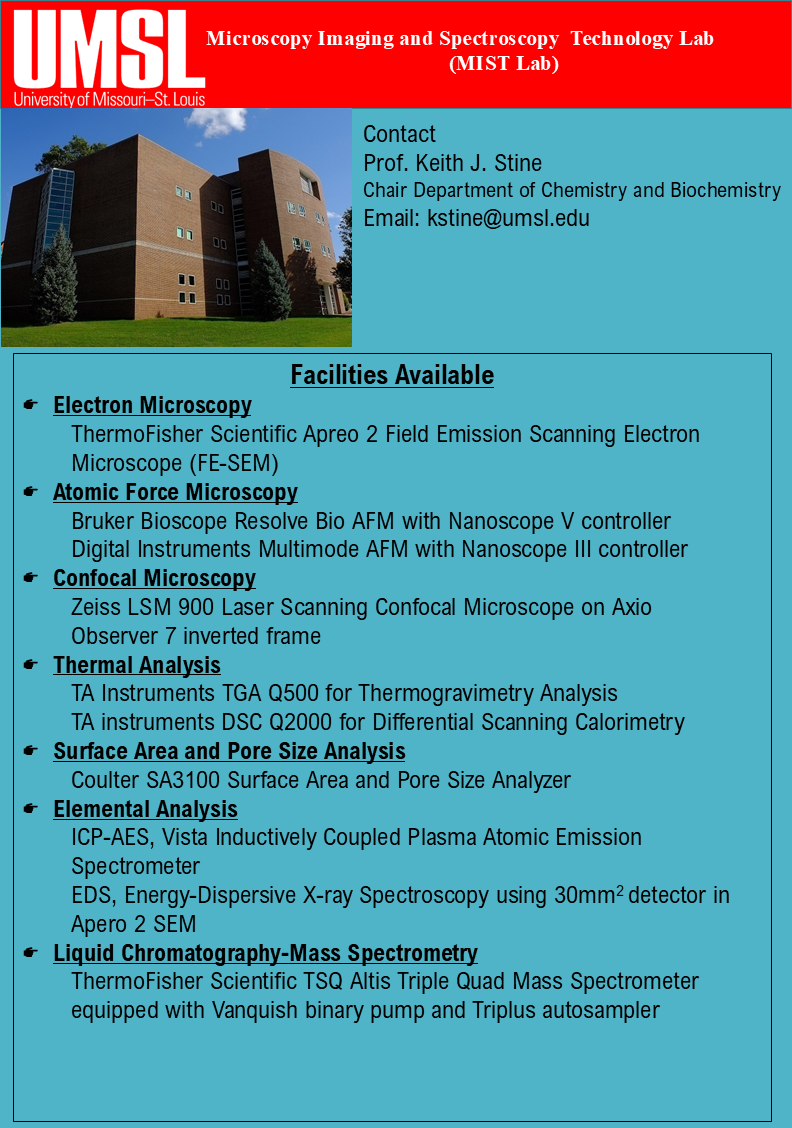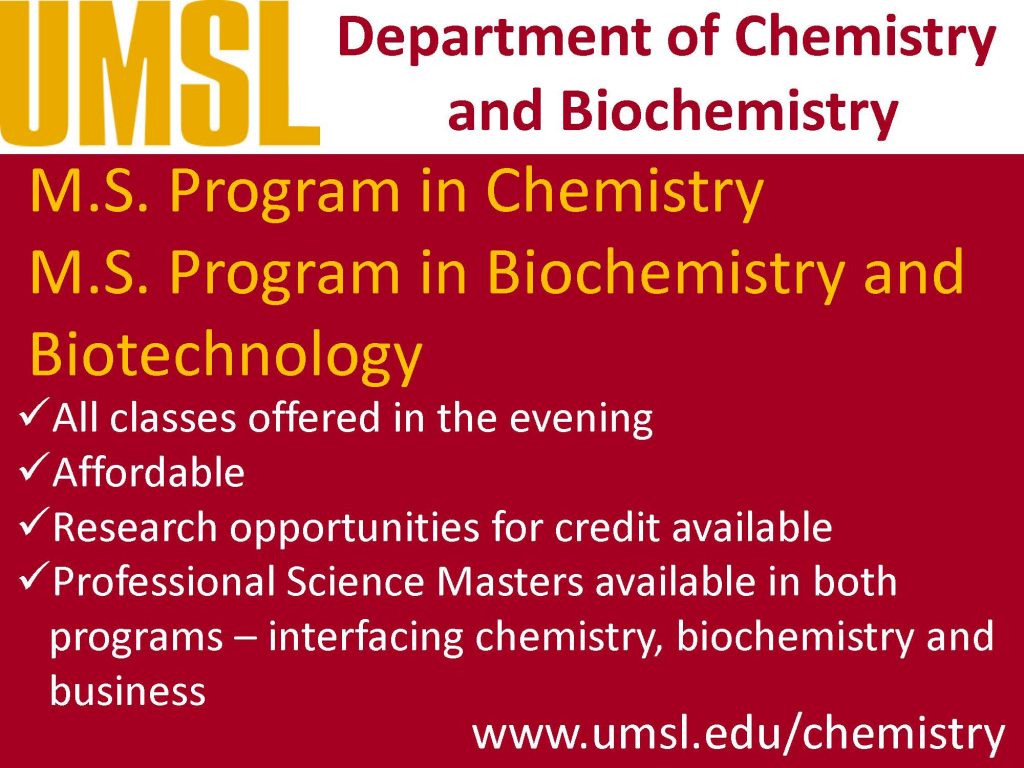
Vol. 77, No. 1, January, 2026
- 2025 St. Louis Section Symposium and Banquet in Honor of Benjamin Garcia 11 December 2025
On Friday, December 5, Dr. Benjamin Garcia was honored with a symposium and banquet celebrating his receipt of the 2025 St. Louis Section American Chemical Society Award. The award is given annually to an individual who has made outstanding contributions to the profession of chemistry and shown strong potential to further advance the field.
The Garcia lab develops and applies state-of-the-art mass spectrometry–based proteomic methods and computational approaches to interrogate protein modifications. This work has helped elucidate mechanisms of human disease, including cancer progression and developmental disorders.
The symposium, “Spectrometry for the Masses: From small molecules to protein structure,” was held Friday afternoon at the Eric P. Newman Education Center, beginning at 1:00 p.m. Over forty attendees from industry and academia participated. Ms. Elizabeth Bergman, Chair of the St. Louis Section and Senior Biologics Account Manager at Waters/Wyatt Technology, opened the program with a welcome and a brief introduction to the ACS and the St. Louis Section, noting its founding in 1907 and recognition with numerous ACS ChemLuminary Awards.
She then introduced Prof. Michael Gross, Professor of Chemistry, Immunology, and Internal Medicine, who introduced Dr. Garcia and offered four salutes recognizing his contributions in Science, Service, Awards, and Diversity. Prof. James Edwards, Department of Chemistry, Saint Louis University, followed with a talk titled “Expanding the Metabolomic Toolbox: Chemical Derivatization for Discovery of New Metabolites and Single Islet Analysis.” Professor Gross then presented “Protein Footprinting for Understanding Protein Aggregation in Alzheimer’s Disease.”
After a brief coffee break, Dr. Michael Washburn, Professor of Cancer Biology and Executive Director of the Mass Spectrometry and Proteomics Core Laboratory at The University of Kansas Cancer Center and Medical Center, spoke on “Integrative Structural Modeling of Human Chromatin Remodeling Complexes.” The symposium concluded with a lecture by the honoree, Dr. Garcia, on “Quantitative Proteomics for Understanding Epigenetics Mechanisms.” The meeting adjourned at 5:00 p.m.
Speakers and ACS Section Chair: Jame Edwards, Ben Garcia, Michael Washburn, Michael Gross, Elizabeth Bergman (Chair) Symposium attendees at the Eric P. Newman Event Center. The award banquet was held at Glen Echo Country Club, with more than forty attendees. It began with a cocktail hour featuring wine, beer, soda, and appetizers, including a popular candied bacon.
St. Louis Section Chair Elizabeth Bergman then called guests to dinner, introduced Dr. Garcia and his daughter, and congratulated him on his achievement. She recognized the speakers and thanked them for their talks, then introduced the elected section members present and eight past St. Louis Award recipients in attendance.
Guests were served a mixed green salad followed by a duo entrée of beef tenderloin and Asian-glazed salmon with seasoned sesame rice and stir-fried vegetables. At the start of dessert—an enormous portion of tiramisu—Elizabeth introduced Michael Gross, who delivered his four salutes to Ben Garcia for science, service, awards, and diversity. Elizabeth then presented Ben with the award check and plaque and invited him to the podium.
Ben gave a short talk titled “An Unlikely Career in Science and Academia,” describing his path from community college to becoming a first-generation college graduate at UC Davis. A summer position in Carlito Lebrilla’s lab introduced him to mass spectrometry and inspired him to pursue further academic work. Despite strong grades, he was not admitted to California graduate programs and instead joined Sequenom, where he met John Yates at a talk. Yates encouraged him to apply to the University of Virginia to work with Don Hunt; Ben did so and completed his Ph.D. in four years. After a postdoctoral position with Neil Kelleher at the University of Illinois Urbana-Champaign, he joined Princeton University, then moved to the University of Pennsylvania for its medical school, and later became Chair of the Department of Biochemistry and Biophysics at Washington University.
He emphasized the importance of supportive mentors throughout his career and his commitment to mentoring others, especially disadvantaged and minority students pursuing science. After his remarks, attendees gathered for group photographs and conversation, and the evening concluded on a warm, celebratory note.
Presentation of the Award Plaque. Elizabeth Bergman, Ben Garcia, and Michael Gross. Former and current Awardees. Timothy Wencewicz, Leah O’Brien, James Janetka, John Taylor, Sophia Hayes, Ben Garcia, Istvan Kiss, Keith Stine, Kevin Moeller, Joe Ackerman. Photos courtesy of James O’Brien. Attendees enjoying the Award Banquet at the Glen Echo Country Club. Ben Garcia lab members Carolina Bras Costa, Bibhuti Palai, Kiril Miachin, Ben Garcia, Dominic Scopelliti, Daniel Ramirez, Joanna Gongora, Emily Zahn and Xingyu Liu.

Board of Directors
St Louis Section–ACS Board of Directors meets the second Thursday of each month, usually over Zoom. E-mail chair@stlacs.org for the Zoom link to the next meeting.
Join internet meeting at 6:00 pm for social/chit-chat
Business meeting begins at 6:30 pm
Future meetings: March 12th, April 9th
Maryville University
Seminars are approximately once a month on Thursdays, 4-5 pm. Details are available on the university’s seminar page. All seminars are free and open to the public. Contact Jason Telford for more information.
Saint Louis University
Seminars are generally on Fridays at 12 noon in Carlo Auditorium, Tegeler Hall, unless noted otherwise. Refreshments follow. For the most up-to-date information, refer to the department’s home page and follow the link to the Seminar Schedule.
University of Health Sciences & Pharmacy in St. Louis
The Center for Clinical Pharmacology hosts a monthly seminar series in ARB 212 unless otherwise noted. For the most up to date information refer to the center’s seminar page or contact Jodi Maslin.
University of Missouri–St Louis
Mondays at 4 pm in 451 Benton Hall, unless otherwise specified. Refreshments 15 minutes prior to seminar time. For timely information on visiting seminar speakers, contact the Chemistry Department, 314.516.5311, or visit the seminar schedule. The department has additional seminar series which are also accessible from this page.
Washington University
Seminars are in McMillen 311 at 4 pm unless otherwise noted. For information, consult the departmental events page. Related seminars, including endowed seminar series and the WU med school biochemistry series, are linked here as well.

The Chemical Bond is published at www.stlacs.org January through May and September through December by the St Louis Section–American Chemical Society. If you would like to receive email notification when each issue is posted, you can subscribe to our email list and join the “Chemical Bond reminders” group.
Correspondence, letters to the editor, etc., should be emailed to editor@stlacs.org or mailed ℅ St Louis Section–ACS, PO Box 410192, Saint Louis, MO 63141-0192.
Copyright © 2025 American Chemical Society and the St Louis Section–ACS
| Editor | JB Carroll | . editor@stlacs.org |
| Associate Editor | Eric Ressner | 314.962.6415 editor@stlacs.org |
| Assistant Editor & Advertising Manager | Keith Stine | 314.516.5346 advmgr@stlacs.org |
| Business Manager | Donna Friedman | 314.513.4388 bizmgr@stlacs.org |








